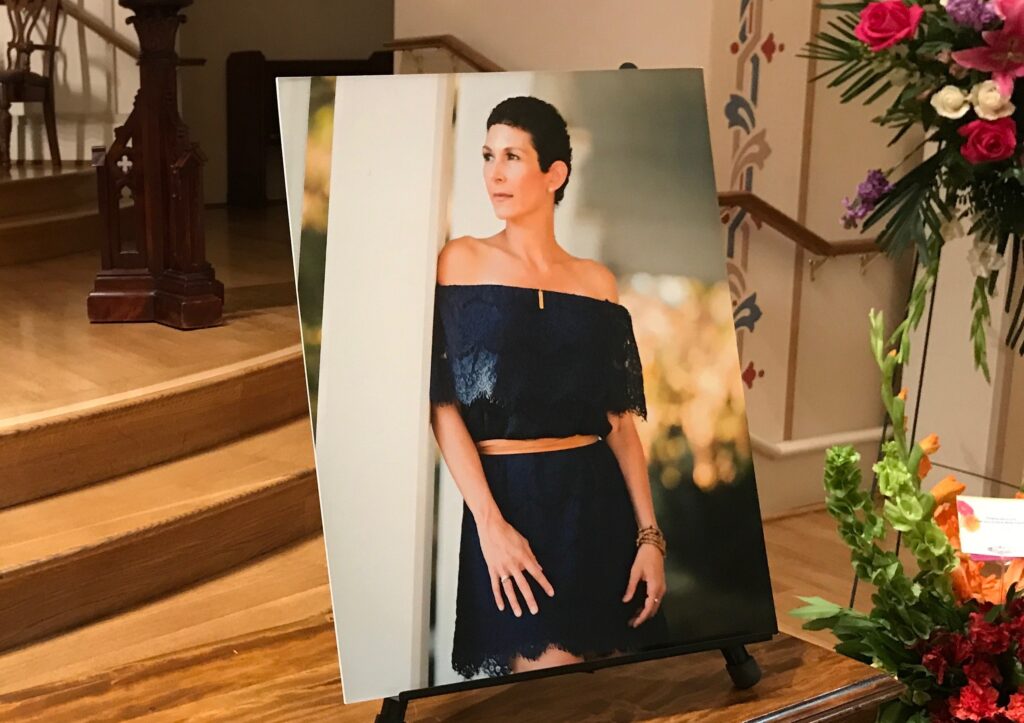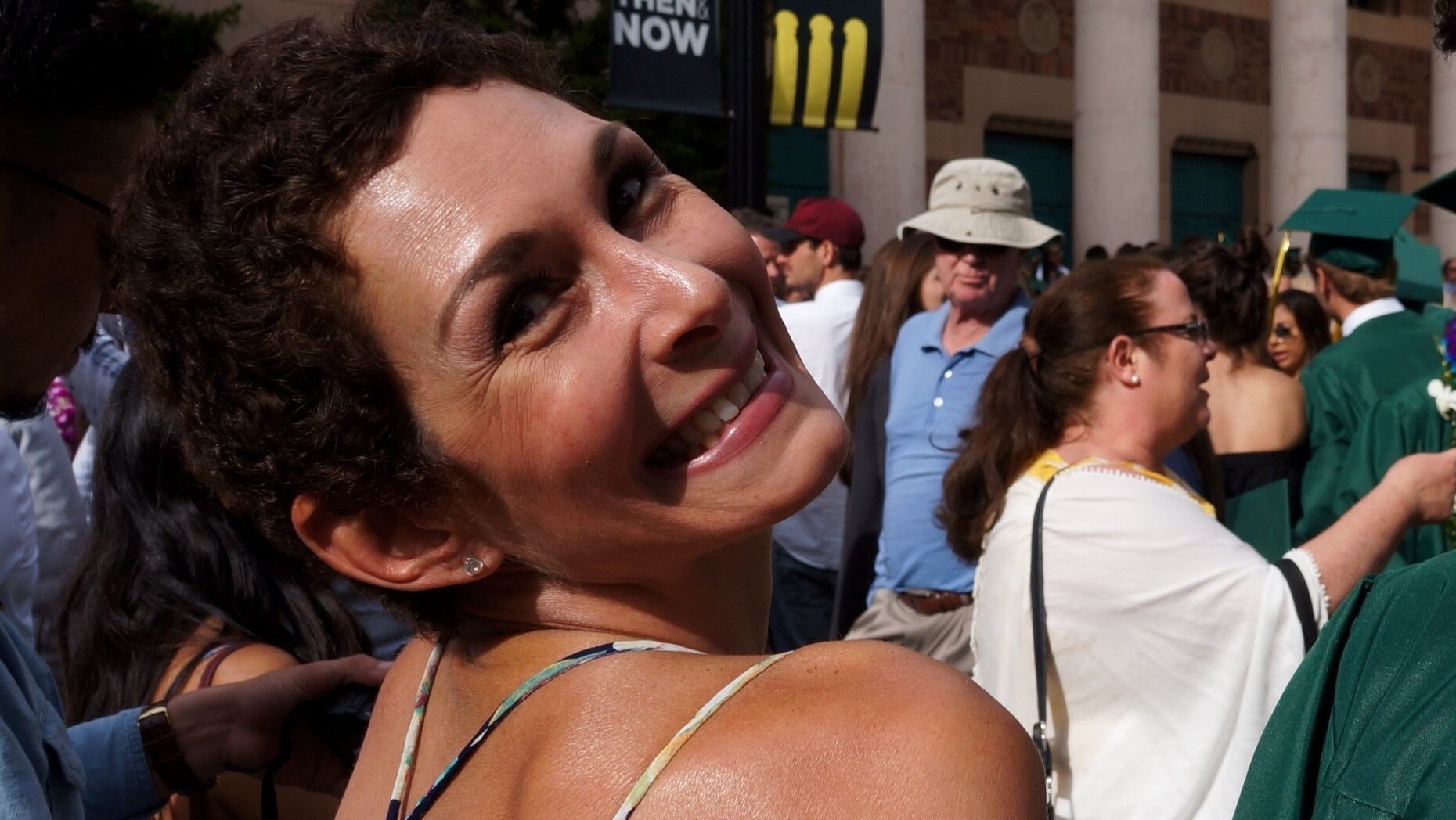The Abridged version:
- This month marks 40 years of the breast cancer awareness campaign, which has seen “tremendous progress.”
- A Sacramento resident died from breast cancer after doctors failed to take her symptoms seriously early on. Almost 20 years after her diagnosis, the advice remains the same: Early detection and access to care can save lives.
- UC Davis Health is offering free screening mammograms this month to uninsured and underinsured individuals across the greater Sacramento region.
In 2004, 31-year-old Karri Grant found a lump in her left breast that was causing her discomfort. After three years of push and pull from doctors, the Sacramento resident paid out of pocket for a plastic surgeon to remove the lump, but what he found was rare:
Three types of breast cancer.
“If a doctor says no, then see another doctor,” Grant said in a 2010 interview about her journey through breast cancer. “If that doctor says no, see another doctor.
“Listen to that inner spark that something’s not right because you know your body better than anyone else does.”
Grant underwent multiple lumpectomies, biopsies and mastectomies to eradicate the breast cancer. She also completed chemotherapy, radiation and two reconstructive surgeries.
Eventually, the cancer came back and Grant was “back into the struggle,” said Roseville resident Shawn Habermehl, one of Grant’s best friends.
The breast cancer had metastasized, spreading to various parts of Grant’s body, including her liver, bones and spine. In 2017, the mother of two died in her Sacramento home. She was 44 years old.
“She did everything … but that obviously didn’t work,” said Habermehl, who met Grant in 2010 through the Me-One Foundation, a Northern California-based nonprofit organization offering free camp retreats to families affected by cancer.
Almost 20 years after Grant’s diagnosis, the advice remains the same: Early detection and access to care can save lives.

40 years of breast cancer awareness. What’s changed?
There has been “tremendous progress” in “ending breast cancer as we know it.”
That’s according to the American Cancer Society, a nonprofit dedicated to ending cancer, predicting a total of 5.3 million breast cancer survivors by 2035.
This month marks 40 years of breast cancer awareness, an initiative that’s saved more than half a million lives through better treatment and screening mammograms, according to a 2025 cancer figures report from the cancer society. The female breast cancer mortality rate dipped 44% from its peak in 1989 and 2022.
Still, more women die from breast cancer in the U.S. compared to any other cancer except lung cancer. During the 40th anniversary of one of the most charitable initiatives in the country, the future of breast cancer research hangs in question as federal funding cuts to cancer research ripple across the country.
A woman in the U.S. has a 1 in 8 chance of being diagnosed with breast cancer in their lifetime, and a 1 in 43 chance of dying from the disease, according to the cancer society.
This year, an estimated more than 42,000 women will die from breast cancer.
“So far,” federal funding cuts haven’t affected breast cancer research at the UC Davis Comprehensive Cancer Center, said UC Davis Health spokeswoman Stephanie Winn in an email on Oct. 10.
The cancer center on 45th Street in Sacramento is one of California’s 10 cancer centers appointed by the federal government’s National Cancer Institute for its “state-of-the-art research,” according to its site. It’s the only location in the Sacramento region.
UC Davis announced recently a public awareness campaign highlighting the importance of federally funded research, stating that its work is under the “greatest threat.”
Early detection of breast cancer can save lives
Screening mammograms play a crucial role in breast cancer survival rates, said Dr. Anne Darrow, associate chair of outreach and engagement at the UC Davis Health Department of Radiology.
A mammogram is an X-ray image of the breast that specialists analyze to detect early signs of breast cancer. Routine mammograms may be able to detect breast cancer up to three years before it can be felt.
Darrow, a radiologist specializing in breast imaging, said there are excellent treatment options that can “essentially cure the disease before it progresses and spreads” if the cancer is detected early.
“The earlier that we can detect cancer, the better the outcomes are for patients,” she said.
When should I get a mammogram?
Women should get a mammogram annually beginning at age 40, according to the American College of Radiology.
At age 25, patients should begin having conversations with their doctors about their risk for developing breast cancer and whether they should get a mammogram or additional testing before age 40.
One of the main risk factors associated with developing breast cancer is age, according to the CDC. Other factors, Darrow said, include a family history of breast cancer, a history of radiation to the chest and genetic mutation.
Some people, such as Grant, who died from breast cancer at age 44, develop breast cancer without any known risk factors.
“Anyone with breast tissue can develop breast cancer,” Darrow said, urging those who meet the guidelines to get a screening mammogram.
UC Davis Health is offering free screening mammograms this month to both uninsured and underinsured women between the ages 40 and 74 across the greater Sacramento region who are in otherwise good health.
Marissa Bashore, a health educator with the UC Davis Comprehensive Cancer Center, said the annual program is designed to bridge the barriers often associated with cancer screening, including access, cost and travel.
Roughly 95 people were screened at last year’s event, she said.
Women ages 40 to 74 who meet the following requirements are eligible for a free screening mammogram at the UC Davis Health Lawrence J. Ellison Ambulatory Care Center in Sacramento, according to UC Davis Health:
- You have not undergone a breast cancer screening in the past year.
- You are uninsured or underinsured.
- You have no unusual symptoms, including lumps, pain, swelling or discharge.
Bashore said patients screened at the appointment-only event, which takes place from 7:15 a.m. to 3 p.m. on Oct. 18, 19, 25 and 26, will also receive a $10 gas gift card and validated parking. Appointments can be made at 916-734-8449.
WellSpace Health, a nonprofit health system in the Sacramento region providing medical, dental and behavioral health services, will provide follow-up care.
“We know that breast cancer is very common,” said Bashore, who helps lead the annual breast cancer screening event. “We also know that with early detection, breast cancer is very survivable.”
As breast cancer rates in younger women rise across the country, Darrow said she urges people to consult their doctors if abnormal symptoms develop within the chest region, including lumps, isolated pain or nipple discharge.
Conversations within the health care sector about lowering the recommended age to start annual cancer screening are ongoing, Darrow said. She said breast self-exams and online breast cancer risk calculators are especially great tools for younger people to use to assess their risk for breast cancer.
“I definitely encourage people, especially young people, to advocate for their health,” Darrow said.
Equity disparities in breast cancer
While everyone is affected by breast cancer, people of color experience significant disparities in treatments and outcomes.
According to a 2024-2025 breast cancer figures report from the American Cancer Society, Black, American Indian and Native Alaskan women have higher breast cancer mortality compared to white women, despite lower incidence. Black women are the least likely to survive every known stage of breast cancer.
When Black women are diagnosed with breast cancer, Darrow said, often the disease has already spread beyond the breast and into other parts of the body. The more advanced the disease is at the time of diagnosis, the lower the survival rate, she said.
Breast cancer incidence rose the highest in Asian American and Pacific Islander women (2.6% annually) between 2012 and 2021, compared to other groups, according to the cancer society. Hispanic women experienced the second-highest increase, 1.6% annually.
In a new study about breast cancer survival disparities in the U.S. led by the American Cancer Society, researchers found that non-Hispanic white women with private insurance had the best survival rate compared to all other groups.
The cancer society couldn’t be reached for comment in time for publication.
“Insurance was a problem for Karri,” said Habermehl, who believed that despite advocating for her health, her friend “slipped through the cracks” like so many Americans without access to quality health care.
Habermehl, who continues to honor Grant through her work with the Me-One Foundation, said she urges people not to take their health for granted, to prioritize annual checkups and to advocate for their health.
“A lot of people don’t understand how precious time is until they’re told they may not have the time they think,” Habermehl said.
“One day you’re healthy and the next you’re sitting in front of a doctor saying, ‘you’re not so healthy,’” she said. “Your perspective quickly flips to what’s important and what’s not.”
Brianna Taylor is a regular contributor, covering Health and Wellness for Abridged.

